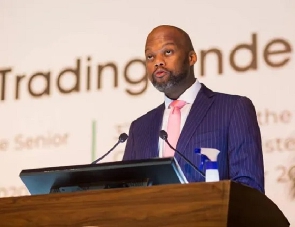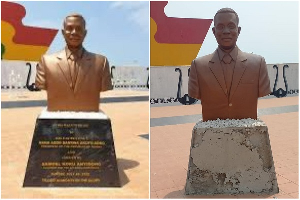Delays in ratifying the African Union’s protocol on the free movement of persons could threaten the successful implementation of the African Continental Free Trade Area (AfCFTA), Senior Strategy Advisor, United Nations Development Programme (UNDP), Dr. Joy Kategekwa, has said.
The free movement protocol aims to achieve regional connectedness, integration, broader trade, labour migration and development goals as part of the AU’s Agenda 2063 and consistent with the Global Sustainable Goals of the United Nations 2030. So far, only four countries – Rwanda, Niger, Mali and Sao Tome and Principe – have ratified the protocol and deposited it with the AU, with the protocol requiring 15 ratifications to enter into force.
Worried that delays in ratifying the protocol could scupper the successful implementation of the AfCTA, a continental free trade agreement, Dr. Kategekwa told the B&FT that the free movement of people is a critical aspect of integration on the continent – and its absence is hurting trade.
“We are talking about how to accelerate the implementation of the African Continental Free Trade Area. We can’t do that when people are not moving. People will be the face that makes the African Continental Free Trade Area relatable. So, free movement is definitely part of the architecture for the African Continental Free Trade Area from the perspective of trying to facilitate movement, especially for those engaged in trade and services,” she said.
She therefore expressed fear that Africa’s prosperity will not be attained by taking an approach that has a narrow scope only for trading and services – saying it has to be expanded “to traders, to investors, to lower-skilled professionals, to truck drivers, to everybody”.
Time is of the essence
Explaining why efforts must be expedited to ratify the free movement protocol, she said: “We must move and accelerate momentum on the African Union’s protocol on free movement because it will cover the gap that the trade part doesn’t, which is this idea that Africans should be able to enter, reside and establish in other Africa countries to seize the opportunities.
“Africa’s prosperity is almost conditioned on getting the AU’s protocol on the free movement of people ratified, because then Africans can move around freely and understand and take advantage of opportunities in the AfCFTA,” she added.
AfCFTA, if implemented successfully, is expected to present a major opportunity for African countries to bring 30 million people out of extreme poverty and raise the incomes of 68 million others who live on less than US$5.50 per day, according to the World Bank.
Its implementation includes trade facilitation measures that cut red-tape and simplify Customs procedures. AfCTA will also help usher-in the kinds of reforms necessary to enhance long-term growth in African countries
Meanwhile, the free movement of people is seen as a tool with which other development aspirations – such as prosperity, peace and security, among other key indices in the continent including success of the AfCFTA – can be achieved.
Business News of Friday, 24 February 2023
Source: thebftonline.com

















